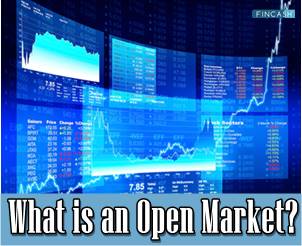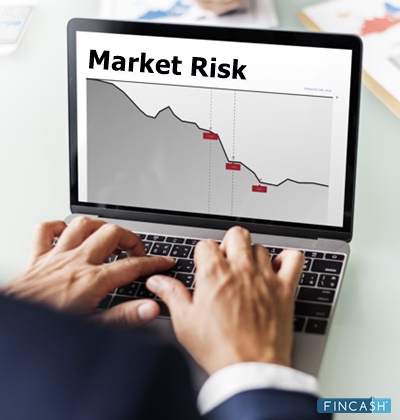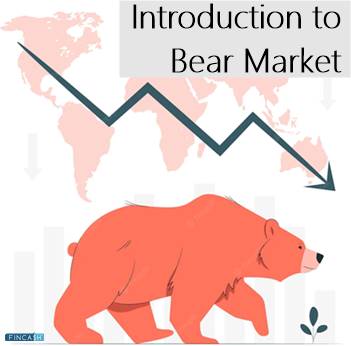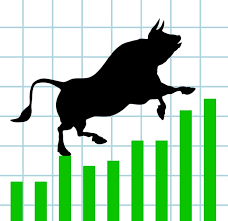What is an Open Market?
An open market is known to have little to no restrictions on how businesses can operate. Tariffs, taxes, licencing requirements, subsidies, unionisation, and any other laws or practices obstructing free-market activity are not present in an open market.

Open markets may have competitive entry obstacles, but there are never any regulatory entry barriers.
Working of Open Market
The pricing of goods and services in an open market is mainly determined by supply and demand, with little interference or outside influence from powerful corporations or governmental organisations.
Free trade policies, which aim to end discrimination against imports and exports, go hand in hand with open markets.
Open Market Operations
Open market operations are buying and selling of Treasury Bills and other Government Securities by a country's Central Bank to control the amount of money in the economy. In fact, this is one of the most effective methods of monetary control used by central banks.
Open Market Operations RBI
Open Market Operations (OMO) refers to RBI's concurrent sale and buying of treasury bills and government securities. Its goal is to control the amount of money in the economy, and RBI works with the public indirectly through commercial banks to implement the OMO.
Talk to our investment specialist
Open Market Trading
Although the transactions must be disclosed, the insider's purchase or sale in an open-market transaction is made voluntarily. The trading activity usually is not subject to any company restrictions.
NSE Pre-Open Market
The National Stock Exchange (NSE) and Bombay Stock Exchange (BSE) hold pre-open market sessions from 9:00 AM to 9:15 AM. The pre-open market is the trading period that occurs right before the regular stock market session.
Open Market vs Closed Market
An open market is thought to be very open, with few restrictions stopping an individual or group from taking part. Competitive entry obstacles may exist in an open market. It may be more challenging for smaller or newer businesses to enter the market because major market players already have a well-established and potent presence. Nevertheless, there are no entry-level regulatory restrictions.
A closed market, which is one where there are too many restrictions on free-market activity, is the antithesis of an open market. Closed markets may impose participation restrictions or permit pricing to be decided based on factors other than simple supply and demand. Most markets fall between the two extremes and are neither fully open nor fully closed.
A closed market, often known as a protectionist market, aims to shield its home producers from outside rivalry. Foreign businesses in several Middle Eastern nations are only allowed to compete locally if they have a "sponsor," a local organisation or citizen who owns a specific percentage of the company. Compared to other countries, nations that follow this criterion are not considered open.
Open Market Examples
Here are some examples of open markets and closed markets across the World:
| Open Markets | Closed Markets |
|---|---|
| USA | Cuba |
| Canada | Brazil |
| Western Europe | North Korea |
| Australia | - |
Conclusion
In the modern world, no market is entirely open. Every economy has regulations, rules protecting intellectual property, laws requiring honesty, a certain level of service, or product quality. On the grounds that participation in it is dependent upon having enough cash, income, or assets, the idea of an open market in this broad sense is occasionally questioned. People may be barred from involvement if they don't have enough income, resources, or assets. People may therefore have enough money to engage in some markets, but not enough money to do so in other marketplaces. This begs the question of if markets are truly "open" and raises the possibility that the notion of market "openness" is more a matter of perspective.
All efforts have been made to ensure the information provided here is accurate. However, no guarantees are made regarding correctness of data. Please verify with scheme information document before making any investment.












